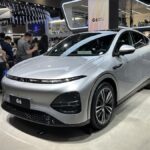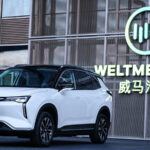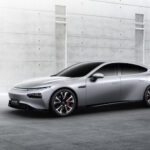Didi Abandons Car Manufacturing, Xpeng Takes the Wheel in a Strategic Partnership
In a strategic move that signifies a shift in the automotive landscape, Didi Chuxing, the prominent ride-hailing giant, has announced its collaboration with Xpeng Motors, a leading Chinese electric vehicle (EV) manufacturer. The partnership aims to introduce a new automotive brand named “MONA,” representing a new direction for both companies in the highly competitive EV market.
The venture includes the launch of an A-class EV model, projected to be priced around 150,000 yuan (approximately $23,000), catering to both individual consumers (C-end) and corporate clients (B-end). This collaboration deviates from Didi’s previous joint project with BYD, known as the D1 model, which primarily targeted the ride-hailing industry.
Unlike the D1 model, the initial MONA vehicle will be characterized by enhanced autonomous driving capabilities, incorporating Xpeng’s advanced XNGP intelligent driving assistance system. The model’s debut is scheduled for the fourth quarter of this year.
Xiaopeng He, CEO of Xpeng, expressed strong optimism about the potential of the mobility market. According to internal sources, Xpeng will spearhead the mass production and development of the project, while Didi will focus on operational support within its ecosystem. This collaboration underscores a mutually beneficial arrangement where Didi mitigates its losses from the D1 project while Xpeng gains a feasible entry point for its advanced autonomous driving technology.
The partnership between Xpeng and Didi aligns with their strategic goals. Didi’s decision to exit the car manufacturing sector reflects its need to cut losses while retaining product value, and Xpeng’s extensive research in autonomous driving technology demands a substantial market entry. The result is the formation of the “MONA” brand, bringing together their strengths and resources.
It’s worth noting that Didi’s previous collaboration with BYD saw the D1 model initially targeted at ride-hailing drivers, with subsequent pivots towards individual consumers. However, the product faced challenges in terms of sales volume, prompting this new partnership with Xpeng.
As part of this collaboration, Xpeng is set to issue Class A common shares equivalent to 3.25% of the total post-transaction capital, acquiring Didi’s assets and research capabilities in the intelligent electric vehicle sector. Didi will consequently become a strategic shareholder of Xpeng.
Xiapeng He’s focus seems to lie not in the vehicle itself but in the “resources” at hand. His confidence in producing a competitive, fully autonomous driving vehicle in the 150,000-yuan price range indicates the direction of their MONA project.
The launch of MONA and its rapid scaling are paramount for Xpeng. This partnership positions Xpeng as the first automaker to receive comprehensive support from Didi’s ecosystem, enabling joint exploration in areas such as vehicle operations, brand marketing, financial services, charging infrastructure, Robotaxi services, and international market collaboration.
MONA is positioned as a cutting-edge player in the 150,000-yuan EV segment with its XNGP intelligent driving assistance system enhancing driver comfort and passenger safety. In the long run, it aims to gradually replace human drivers and enable “unmanned operations” in specific scenarios.
In practical terms, Didi’s autonomous vehicles have already been integrated into the Didi app, featuring a “hybrid dispatch” mode that blends human-driven and autonomous driving services. This model is gradually emerging in areas like Shanghai and Guangzhou.
The Didi-Xpeng partnership showcases the evolving nature of the automotive industry, where ride-hailing giants and EV manufacturers join forces to tap into the potential of the future mobility landscape. As the MONA project unfolds, it will be interesting to see how this collaboration shapes the trajectory of both companies in this highly competitive sector.






